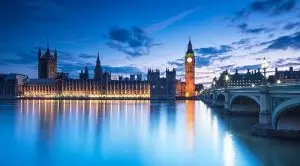 The government review of the UK gambling legislation is already underway, with some warnings regarding betting companies’ shirt sponsorships with professional football clubs being released recently.
The government review of the UK gambling legislation is already underway, with some warnings regarding betting companies’ shirt sponsorships with professional football clubs being released recently.
As already reported by Casino Guardian, gambling operators are increasingly facing the possibility of facing a ban on their sponsorship agreements with British sports clubs as part of a long-delayed overhaul of the industry’s regulation. However, shirt sponsorship deals of gambling companies are not the only part of the sector that is being considered by competent authorities.
According to campaigners, the 2005 Gambling Act has long been failing to ensure the level of regulation that it is supposed to because it has simply become unfit for the purpose. The gambling industry has undergone some considerable changes since the main piece of legislation was rolled out by the Government of Prime Minister Tony Blair.
More than a decade and a half later, gambling services are easily accessible through all kinds of gambling websites, casino and betting apps. The once new type of entertainment quickly grew into a mainstream leisure activity, which also brought the prospects of oversaturation and gambling addiction. The increasing underage involvement in gaming and gambling activities has also been among the widely discussed topics in the last few years.
MPs and Campaigners Insist on Implementation of Further Restrictions for UK Gambling Sector
 According to recent reports, online casino income has been consistently rising. It increased to £3.2 billion in the twelve months ending in March 2020 from £2.36 billion in 2016. The figure represents approximately 30% of the annual £10.2-billion take of the UK gambling sector, excluding the one generated by the UK National Lottery.
According to recent reports, online casino income has been consistently rising. It increased to £3.2 billion in the twelve months ending in March 2020 from £2.36 billion in 2016. The figure represents approximately 30% of the annual £10.2-billion take of the UK gambling sector, excluding the one generated by the UK National Lottery.
In recent years, the sector has faced regulatory limitations it has never experienced before, including the £2 maximum betting cap on fixed-odds betting terminals (FOTBs) that has been considered critical for the land-based gambling sector. At the time, some accompanying limits and their potential impact have also been taken into consideration, with some analysts warning that, if too harsh, further restrictions could cost more than 50% of the current gaming revenues to certain gambling companies.
As Casino Guardian previously reported, the UK Gambling Commission (UKGC) has been considering the implementation of so-called affordability checks when setting deposit limits for operators’ customers. Some analysts raised a red flag that too many limitations could repel customers, especially if players are required to produce payslips or bank statements in order to prove they are capable of gambling above a certain amount.
The major gambling watchdog in the country, the UKGC, has also faced much criticism from campaigners who have been claiming that the regulatory body is unfit to guarantee the desired safety that should be provided to British players. At the same time, some Members of Parliament and campaign groups are still insisting on the implementation of tighter limitations on online gambling.
The main gambling regulator in the UK has also been underfunded. Most recently, the Department for Digital, Culture, Media and Sport (DCMS) has rolled out a consultation regarding the UKGC funding. The consultation, which is separate from the ongoing review of the 2005 Gambling Act, is set to run until March 25th, 2021. It proposes an increase in the Commission’s fees.
Until the end of the 16-week call-for-evidence period, it remains unknown what changes are set to be brought in the sector.
- Author


